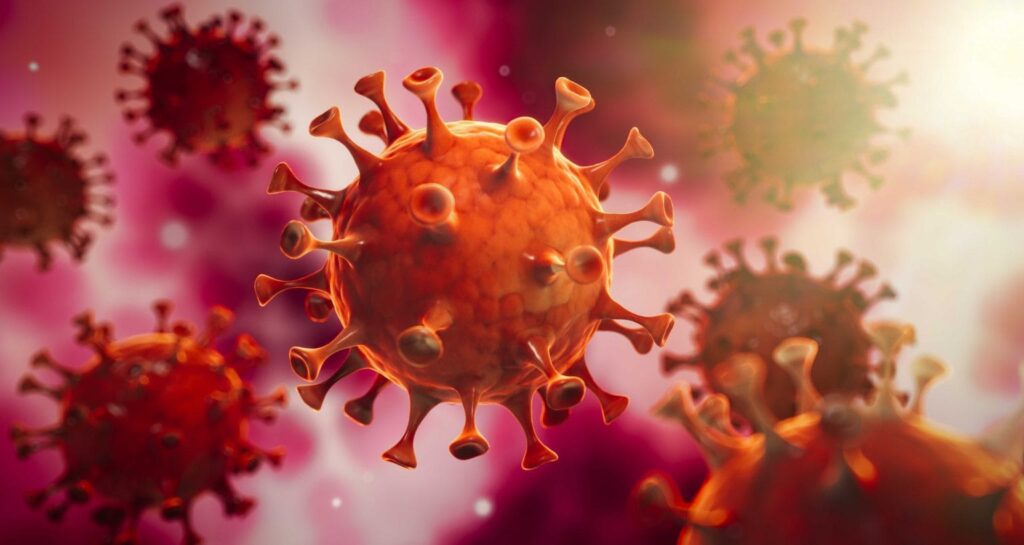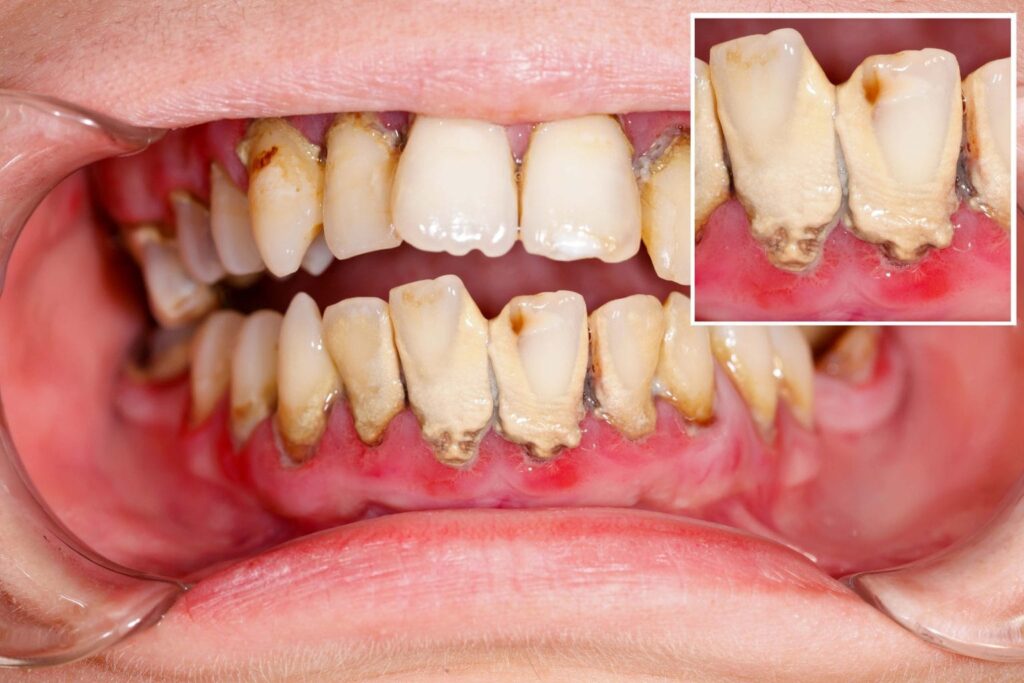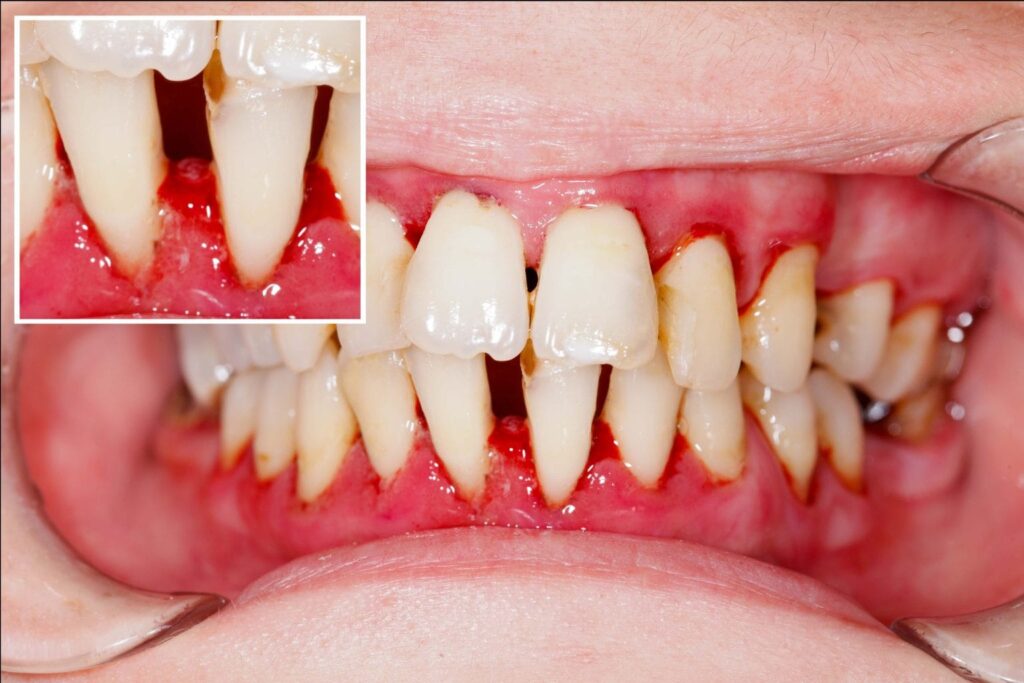
Schlechte Mundhygiene steigert Sterberisiko bei Covid-19 um 70 Prozent
Von Dr. med. dent. Vanessa Wild
Eine gesunde Mundhöhle bewahrt uns nicht nur vor Schmerzen und Funktionseinbußen, sondern auch vor negativen Auswirkungen auf systemische Erkrankungen. Insbesondere bei der Parodontitis (der Entzündung des Zahnhalteapparates), wurden bereits häufig Zusammenhänge mit Allgemeinerkrankungen untersucht. So konnte bereits in mehreren Studien eine Verbesserung der Blutzuckerwerte von Diabetikern nach einer Zahnfleischtherapie beobachtet werden (Engebretson and Kocher, 2013).

Ebenso gilt die Parodontitis als gesicherter Risikofaktor für koronare Herzkrankheiten und Arteriosklerose (Tonetti et al., 2013). Ein weiterer Zusammenhang wird bereits seit den 70er Jahren beschrieben, bekommt jedoch aktuell eine größere Aufmerksamkeit: Zahnbelag (Plaque) kann als Reservoir für akute, wie auch chronische Lungenerkrankungen dienen und erhöht nachweislich das Erkrankungsrisiko für Pneumonien (Didilescu et al., 2005; Fourrier et al., 1998; Raghavendran et al., 2007).

Unter diesem Hintergrund wird momentan auch an einer möglichen Auswirkung oraler Entzündungen auf eine Infektion mit Covid-19 geforscht. Erste Ergebnisse zeigten nun eine erhöhte Sterblichkeit um bis zu 70% bei vorhandener Zahnfleischentzündung (Larvin et al., 2020, Marouf et al., 2021) und mehrere Autoren unterstreichen die potentiellen Auswirkungen der Mundgesundheit auf den Krankheitsverlauf von Covid-19 (Botros et al., 2020; Kara et al., 2020).
Bilder:
Adobe Stock
Literaturangaben:
Botros, N., Iyer, P., Ojcius, D.M., 2020. Is there an association between oral health and severity of COVID-19 complications? Biomed. J. 43, 325–327. https://doi.org/10.1016/j.bj.2020.05.016
Didilescu, A.C., Skaug, N., Marica, C., Didilescu, C., 2005. Respiratory pathogens in dental plaque of hospitalized patients with chronic lung diseases. Clin. Oral Investig. 9, 141–147. https://doi.org/10.1007/s00784-005-0315-6
Engebretson, S., Kocher, T., 2013. Evidence that periodontal treatment improves diabetes outcomes: a systematic review and meta-analysis. J. Periodontol. 84, S153-169. https://doi.org/10.1902/jop.2013.1340017
Fourrier, F., Duvivier, B., Boutigny, H., Roussel-Delvallez, M., Chopin, C., 1998. Colonization of dental plaque: a source of nosocomial infections in intensive care unit patients. Crit. Care Med. 26, 301–308. https://doi.org/10.1097/00003246-199802000-00032
Kara, C., Çelen, K., Dede, F.Ö., Gökmenoğlu, C., Kara, N.B., 2020. Is periodontal disease a risk factor for developing severe Covid-19 infection? The potential role of Galectin-3. Exp. Biol. Med. Maywood NJ 245, 1425–1427. https://doi.org/10.1177/1535370220953771
Larvin, H., Wilmott, S., Wu, J., Kang, J., 2020. The Impact of Periodontal Disease on Hospital Admission and Mortality During COVID-19 Pandemic. Front. Med. 7, 604980. https://doi.org/10.3389/fmed.2020.604980
Marouf N, Cai W, Said KN, et al. Association between periodontitis and severity of COVID-19 infection: a case-control study. J Clin Periodontol. 2021. doi:10.1111/jcpe.13435.
Raghavendran, K., Mylotte, J.M., Scannapieco, F.A., 2007. Nursing home-associated pneumonia, hospital-acquired pneumonia and ventilator-associated pneumonia: the contribution of dental biofilms and periodontal inflammation. Periodontol. 2000 44, 164–177. https://doi.org/10.1111/j.1600-0757.2006.00206.x
Tonetti, M.S., Van Dyke, T.E., working group 1 of the joint EFP/AAP workshop, 2013. Periodontitis and atherosclerotic cardiovascular disease: consensus report of the Joint EFP/AAP Workshop on Periodontitis and Systemic Diseases. J. Periodontol. 84, S24-29. https://doi.org/10.1902/jop.2013.1340019